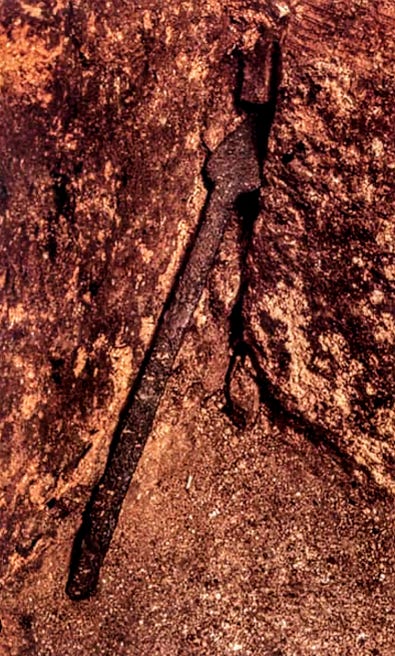One lesson from Kristallnacht is positively terrifying after Oct. 7
Eighty five years ago, on November 9, 1938, the world faced a massive turning point. A dress rehearsal for mayhem proved that a war could be waged against innocent Jewish civilians, where the nations of the world would not raise a finger to stop it. What happened on Oct. 7 was astoundingly similar. A meticulously coordinated campaign of violence was directed against the Jews, only this one even more destructive than Kristallnacht, and the nations of the world, including the Jews’ very own highly militarized state, were powerless to stop it. And after only a few days, the world was ready to tolerate what happened as if it had been just another skirmish – and to move on, with almost no repercussions for the perpetrators. Nothing to see here.
Oct. 7 was way beyond the pale and was utterly unique, but it didn’t happen without a long period of incubation. For decades terrorists have been scaling up attacks on Israelis. Each one was just a little more lethal and outrageous. I can recall the days when a single rocket sent by Palestinians across the Lebanese frontier could lead to massive retaliation – even a war in 1982. There was a time when a few rocks thrown by teenagers were called an Intifada and Rabin swore to break their bones. Saddam Hussein’s 42 scuds over the course of a few weeks in 1991 were considered a massive war crime. But by 2023, Hamas was shooting off that many rockets at civilian targets in the time it takes to order a falafel.
But even from the standards of the most recent Israel-Hamas wars, Oct. 7 was a huge leap. And now it has established a new baseline, a precedent. The pot with the frog is now boiling. What had been utterly unimaginable has now become inevitable. Once it has happened, it can easily happen again, as Hamas leadership has already boasted. We have a new benchmark for evil. And as in 1938, the world did not do more than send a round of condolence cards. Some have done more, like the US, but even they are now being pressured to roll back their support. Unless the IDF is able to finish its work, a new cycle of violence will have been started, one starting at Defcon 3, and from there it will only intensify. On Oct 7, Hamas declared Open Hunting Season on Jews, and Jewish blood was spilled across the world, even in L.A.
We’ve seen this movie before, in black and white, in1938.
Historian Alan E. Steinweis writes:
The Kristallnacht was a monumental development in Nazi anti-Jewish policy for several reasons. It was the single instance of large-scale public and organized physical violence against Jews in Germany before the Second World War. It unfolded in the open, in hundreds of German communities, even those with very few Jewish residents, and took place partly in broad daylight. It inaugurated the definitive phase of so-called Aryanization: the coerced expropriation of German-Jewish property… [It was] the culmination of a brutal trajectory.
Despite this massive pogrom, the world stood by and the German people acquiesced. Paris, London and Washington DC condemned the riots, but took little action. Some ordinary Germans backed the pogrom while others were indifferent. There were also some public condemnations of Kristallnacht (to the extent that such things were possible in Hitler’s Germany). But by that point, the people were powerless to mount significant resistance.
On the fiftieth anniversary of the event, The New York Times surveyed historians on the significance of Kristallnacht in relation to the Holocaust as a whole. The article noted that, while many Americans voiced shock at the terrible events of Kristallnacht, not long afterward, when Senator Robert F. Wagner of New York proposed to stretch immigration quotas so that about 10,000 Jewish children could escape Nazi violence and come to the United States, the effort was defeated in a Congressional committee.
Ultimately, all that happened in response to this deadly pogrom was that America recalled its ambassador after hesitating for four days. That was the strongest international gesture, despite all the front-page headlines. As evil as the Nazis designs were – and as deadly as they would turn out to be – to this point there had not been massive physical violence directed toward the Jewish population.
Kristallnacht changed all that. I’m not suggesting that Oct. 7 will necessarily be the prelude to another Holocaust. But on Oct. 6, who could have imagined Oct 7? After October 7, one can easily imagine November 9. And it’s staggering to realize that after Kristallnacht, despite a virulent antisemitism all over the world, including America, there were no anti Jewish rallies of the sort we’ve seen post Oct. 7.
The world has muscle memory for Jew hatred. Spurred on by Kristallnacht, it metastasized into something much more dangerous and violent. The same muscle, put on ice for 80 years, has been exercised once again.
Was Oct. 7 an aberration that led to the elimination of Hamas and a sudden eruption of sanity?
Or, as history suggests, was it the moment when the world allowed the unimaginable to become inevitable?

